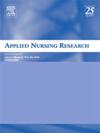探讨胶质母细胞瘤术后早期患者及其护理者对临终关怀计划的看法:一项探索性质的访谈研究。
IF 2.2
4区 医学
Q1 NURSING
引用次数: 0
摘要
目的:比较台湾地区胶质母细胞瘤术后早期患者及其照护者对临终关怀计划的认同与分歧。背景:胶质母细胞瘤患者的决策能力可能会随着疾病的进展而降低,因此早期的未来护理计划对于确保提供的护理符合患者的目标至关重要。然而,在许多亚洲文化中,避免讨论死亡的倾向会导致患者在处理临终关怀选择时感到犹豫。这种不情愿可能会影响所提供护理的质量,并增加护理人员的替代决策负担。方法:采用半结构化质性访谈法,对台湾北部某医疗中心术后早期胶质母细胞瘤护理者进行探索性质性研究。专题分析与分析的严谨性加强了双重编码和探索趋同和分歧的观点。结果:我们采访了7对患者-护理者(n = 14)。超过一半的患者为男性(中位年龄:62岁)。主要照顾者主要是他们的配偶(年龄中位数:47岁)。趋同的观点包括拒绝延长死亡治疗、临终关怀的实现、临终关怀讨论的时机、临终关怀的关注和提前临终关怀的安排。分歧的观点包括生命价值(质量vs数量),缺乏透明和共享的讨论(显性vs隐性),以及决策范式(个人主义vs集体主义)。结论:胶质母细胞瘤患者的早期临终关怀讨论对于解决不同的价值观和强调家庭和谐的文化至关重要。透明的沟通减少了护理人员的压力,并支持在预先护理计划、症状管理以及经济或社会支持方面做出明智的决定。本文章由计算机程序翻译,如有差异,请以英文原文为准。
Exploring the perspectives of early-stage postoperative glioblastoma patients and their caregivers on end-of-life care planning: An exploratory qualitative interview study
Aim
Compare the convergent and divergent viewpoints of early-stage postoperative patients with glioblastoma and their caregivers on end-of-life care planning in Taiwan.
Background
Decision-making capacity in patients with glioblastoma may be compromised as disease progresses, making early future care planning essential to ensure that the provided care aligns with patients' goals. However, within many Asian cultures, the tendency to avoid discussions about death can lead patients to feel hesitant about addressing end-of-life care options. This reluctance may impact the quality of care provided and increase the surrogate decision-making burden on caregivers.
Methods
An exploratory qualitative study with semi-structured qualitative interviews was conducted on early-stage postoperative glioblastoma–caregiver dyads at a medical center in Northern Taiwan informed by social constructivism. Thematic analysis with analytical rigor enhanced by dual coders and exploration of convergent and divergent views.
Results
We interviewed 7 patient–caregiver dyads (n = 14). More than half of patients were male (median age: 62 y/o). Primary Caregivers were primarily their spouses (median age: 47 y/o). Convergent viewpoints include death-prolonging treatment refusal, end-of-life fulfillment, timing of end-of-life care discussions, end-of-life concerns, and advance end-of-life care arrangement. Divergent viewpoints include life value (quality vs. quantity), lack transparent and shared discussions (explicit vs. implicit), and decision-making paradigm (individualistic vs. collective).
Conclusions
Early end-of-life care discussions for patients with glioblastoma are crucial to address differing values and cultural emphasis on family harmony. Transparent communication reduces caregiver stress and supports informed decisions on advance care planning, symptom management, and financial or social support.
求助全文
通过发布文献求助,成功后即可免费获取论文全文。
去求助
来源期刊

Applied Nursing Research
医学-护理
CiteScore
4.50
自引率
0.00%
发文量
65
审稿时长
70 days
期刊介绍:
Applied Nursing Research presents original, peer-reviewed research findings clearly and directly for clinical applications in all nursing specialties. Regular features include "Ask the Experts," research briefs, clinical methods, book reviews, news and announcements, and an editorial section. Applied Nursing Research covers such areas as pain management, patient education, discharge planning, nursing diagnosis, job stress in nursing, nursing influence on length of hospital stay, and nurse/physician collaboration.
 求助内容:
求助内容: 应助结果提醒方式:
应助结果提醒方式:


